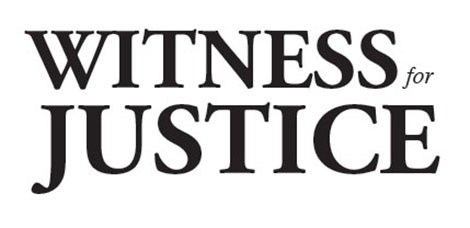Commentary: Toward a Global Compact on Migration for the Well-Being of All
 Global movements of people always have been a reality. Today, displacement is accelerating because of political turmoil and violence; economic, technical and communication changes; and changes in the habitability of land due to climate change. We, as a human community, urgently need to figure out a safe, orderly and regular way to adapt to large movements of people for the well-being of all. It is complicated, to say the least.
Global movements of people always have been a reality. Today, displacement is accelerating because of political turmoil and violence; economic, technical and communication changes; and changes in the habitability of land due to climate change. We, as a human community, urgently need to figure out a safe, orderly and regular way to adapt to large movements of people for the well-being of all. It is complicated, to say the least.
The call to this work within our Christian faith unmistakable. Jesus asserts the two greatest commandments as “You shall love the Lord your God with all your heart, and with all your soul, and with all your mind” and “You shall love your neighbor as yourself” (Matthew 22:37, 39). Much of scripture recorded before Jesus also is organized around the faith and identity of those forced to move. Leviticus, for example, highlights the connection between God’s nature and our life in human community, “The alien who resides with you shall be to you as the citizen among you; you shall love the alien as yourself, for you were aliens in the land of Egypt: I am the Lord your God.”
So, how does that love get implemented in the midst of this accelerated and forced movement of large groups of people? Global conversations already have begun. In the “New York Declaration for Refugees and Migrants” of September 2016, UN member states stated that “human mobility is an essential component of economic and social development everywhere.” On December 3, 2017, however, the day before the launch of the second conversation phase toward a “Global Compact for Safe, Orderly and Regular Migration” (GCM), the United States President, State Department and United Nations Ambassador announced the U.S. withdrawal from the process. Their explanation focused on concern about national sovereignty, which is highly unsatisfactory since the stated international process begins and ends with confirmation of national sovereignty and the importance of working together to create coherent national policies to address this global phenomenon. Removing ourselves as a nation does nothing toward figuring out together how to create well-being for all in the midst of forced movements of people now, and in the decades to come. President of the UN General Assembly, H.E. Mr. Miroslav Lajčák, replied to the announcement that “no one State can manage international migration on its own.”
Our nation’s withdrawal from the conversation makes figuring out a way forward even more complicated. As people of faith, however, this roadblock cannot be the last word. Through faith, we rehearse stories of identity that are forged in the midst of movement and welcome. We proclaim a divine empowerment to love for the sake of the well-being of all, particularly the most vulnerable. We see a vision of a just world for all. Yes, we will continue the conversation.
Rev. Dr. Mary Schaller Blaufuss is Team leader for the UCC’s Global Sharing of Resources Team (Disaster, Development, Refugee & Volunteer Ministries).
View this and other columns on the UCC’s Witness for Justice page.
Donate to support Witness for Justice.
Click here to download the bulletin insert.
Related News
Into the Fray
A few weeks ago, I sat in a Zoom room with about a dozen UCC pastors and lay leaders from...
Read MoreGod & Country
Beyoncé’s new Cowboy Carter album has sparked controversy over whether it should be...
Read MoreVoices for Change: Advocacy at the United Nations
“Why do you do this work?” The question came from the pastor of the youth group...
Read More
